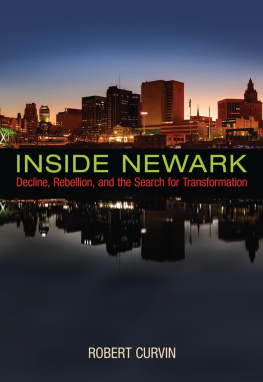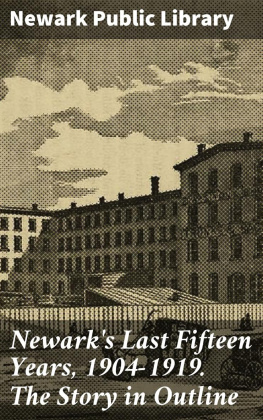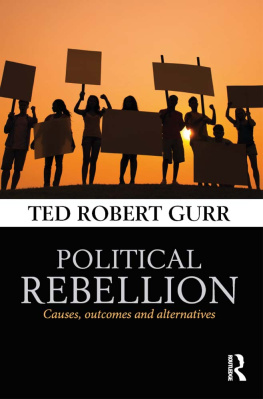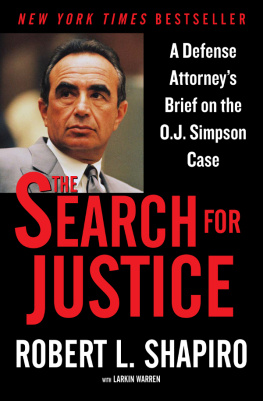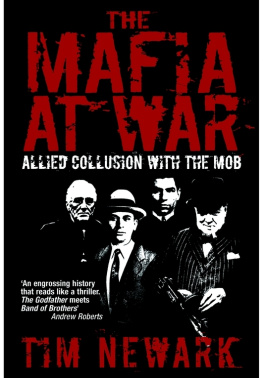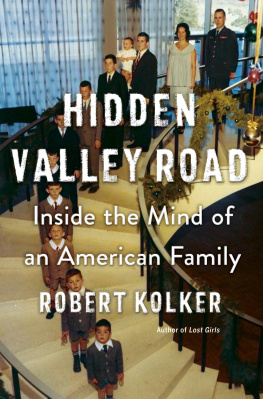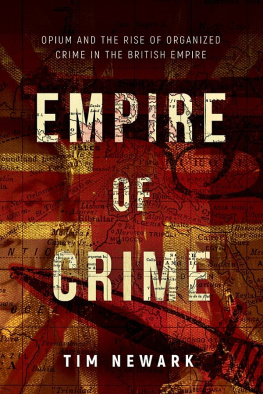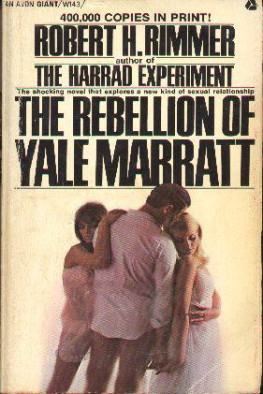Library of Congress Cataloging-in-Publication Data
Curvin, Robert.
Inside Newark : decline, rebellion, and the search for transformation / Robert Curvin.
pages cm.(Rivergate regionals collection)
Includes bibliographical references and index.
ISBN 978-0-8135-6571-2 (hardback)
ISBN 978-0-8135-6572-9 (e-book)
1. Newark (N.J.)Politics and government. 2. Political cultureNew JerseyNewark. 3. Urban renewalNew JerseyNewark. 4. Newark (N.J.)Social conditions. 5. Newark (N.J.)Economic conditions. I. Title.
F144.N657C87 2014
320.09749'32dc23
2013037741
A British Cataloging-in-Publication record for this book is available from the British Library.
Copyright 2014 by Robert Curvin
All rights reserved
No part of this book may be reproduced or utilized in any form or by any means, electronic or mechanical, or by any information storage and retrieval system, without written permission from the publisher. Please contact Rutgers University Press, 106 Somerset Street, New Brunswick, NJ 08901. The only exception to this prohibition is fair use as defined by U.S. copyright law.
Visit our website: http://rutgerspress.rutgers.edu
Manufactured in the United States of America
At first, I was going to write a memoir about my life in Newark. A memoir would invariably have to be about me and it would be hard to give the many people I have worked with, and some who have done much more than I, sufficient attention. I then wondered if I should write a dispassionate, scholarly work on the citys politics. I decided that I could not do that either, for I could not avoid mentioning the movements, campaigns, and organizations that I have been involved with. I could not pretend that I was looking from the outside in. So this book is a hybrid of sorts, a mix of scholarly data sources and my personal experiences and reflections.
Including ones personal stories in a work that needs to be fair and grounded in fact is no easy feat. I, as author, have opinions and biases about some of the matters and individuals that I am obligated to write about. I have belonged to a long list of nonprofits in the city and I have contributed money and advice to political candidates. Some of the individuals I write about have been close friends, or in a few cases, former students. I have done several things in my effort to achieve a balanced account, including referring to historical records and archives of events I witnessed. For example, although I was the director of the Black and Puerto Rican Convention in 1969, I returned to many of the original records of that event as well as the excellent reporting of the convention by local newspapers. Secondly, I have talked with well over one hundred people about the events that I discuss over six decades of city life. For many of the interviews, I used a video camera, giving me a unique resource with some of the key figures in Newarks contemporary history. I also had one of the best local sounding boards a researcher can ever find: Richard Cammarieri, who works for the New Community Corporation and is a dedicated soldier for every good cause in the city. During the early stages of writing this book, he read every chapter and returned with heaps of comments and criticisms. We did not always agree, but he often forced me to rethink or reappraise a statement, a comment, or a conclusion. In some cases, he pointed me to information or data of which I was not aware.
Many others also helped in reviewing the manuscript and offered helpful suggestions. Roland Anglin read several of the early chapters and a few of the later ones as well. Leonard Lieberman, a special friend of more than forty years, rendered timely critiques. Norman Glickman provided editorial advice on the first two chapters and was a terrific partner in our graduate seminar on postindustrial cities. Dan OFlaherty, whose knowledge of the economic history of Newark and its financial challenges is unsurpassed, was generous with his time and insights. Thanks to Lisa Keller for her suggestions and encouragement. Clement A. Price would occasionally ask, Bob, did you see this, or that? Usually it was a gem I needed to know about. Nancy Zak made files of valuable data available to me. David Levering Lewis gave me several important suggestions and was a vital source of encouragement. Richard Roper shared his thoughts on the history and politics of the city. Special thanks to Kenneth T. Jackson and his nudge to tighten up the prose. Thanks also to Kendal Whitlock, Dennis Wygmans, and Frank Curvin, all of whom read parts of the manuscript. And special thanks to Joan Waring who gave me the first push: Bob, when are you going to write your story?
I am deeply indebted to all the staff at the Charles F. Cummings New Jersey Information Center at the Newark Public Library. The librarians there are simply superb and clearly have been left with some of that Charles Cummings devotion to Newark, and the countless researchers who are there every day. I would also like to thank Robert Morasco, Newarks city clerk, and his staff for providing me with access to the city archives. Special thanks to those city employees who granted me interviews or were helpful in making information available. Timothy Brown was a very careful and effective videographer. Beth Cohen, a Princeton student, spent a summer helping me to understand the East Ward. Nicholas Brown provided valuable assistance drafting charts and graphs. Tim Crist, president of the Newark History Society, and Warren Grover, the societys vice president, were supportive and always encouraging. They have made the telling and learning of the citys history an enriching community endeavor. Although the list is far too long to mention, I want to thank all of the people who gave videotaped interviews.
I owe a special thanks to James Hughes, dean of the Bloustein School of Planning and Public Policy at Rutgers University, who invited me to hang out following my retirement from philanthropy because I thought I might want to write a book. It was a critical step in the development of this project and gave me the opportunity to converse with Roland Anglin, Norman Glickman, Sanford Jaffe, Kathe Newman, Linda Stomato, Carl Van Horn, Cliff Zukin, and Dean Hughes as well, and to meet and interact with Bloustein students, all of which added to my learning. Many thanks go to Don Sutton for his advice. Adi Hovav was a terrific first editor. Many thanks to Marlie Wasserman and all of the staff at Rutgers University Press. Marlie saw possibilities in a pretty rough draft and provided the guidance to complete this project.
Last, but surely not least, thanks to my wife, Patricia. I could not have done this without her support, encouragement, and advice. She was there whenever I needed an outside eye for some of the more complicated passages. She has toleratedusually with good spiritthe mounds of files and papers in the house.

